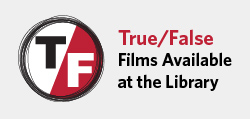“I could have been a contender.”
“The Big Door Prize” by M.O. Walsh is described in a nutshell by Marlon Brando’s famous line from the movie “On the Waterfront.” The book faces, head on, a major exigency of the human condition: finding the meaning in your life and meeting your potential. Lost dreams are given new reality for the characters in the book simply by putting money into a machine. With a sprinkle of your DNA the DNAMIX machine creates shiny new possibilities. The DNAMIX can, likewise, magnify a person’s decided lack of potential in glaring and humiliating ways. “The Big Door Prize” also deals with family, loss and the unique experience of growing up and living in a small town. Underlying this conventional fiction wrapper, however, is a sleepy thread of science fiction or fantasy.
The DNAMIX machine is a door into a different world that exists parallel to our mundane lives, despite its reality as a clunky anti-futuristic contraption behind a curtain. Terry Miles’ new science fiction book “Rabbits” is a far darker exploration of alternate realities. In it, participants engage in an alternate reality game (which has somewhat implausibly gone on since 1957) that exists on the margins of society. Bodies fall, reality is a house of mirrors and the “winners” of this game are unknown, which seems not altogether unlike life in 2022.
I fled the small town I grew up in to eventually live in the city. What I’ve realized, after living in the heart of Columbia, Missouri for over two decades, is that a sort of “othering” goes on toward those who live in very small places. One asks, “how could they live there” and “what are their lives possibly like?” M.O. Walsh’s Deerfield, Louisiana is a place not unlike thousands of others in America, places which Bonnie-Sue Hitchcock captures in sympathetic detail in her most recent work of YA fiction, “Everyone Dies Famous in a Small Town.” The book illustrates the travails and redemptions of teenagers in unique and tiny corners of the western United States, including Alaska.
“ROAR: Into the Second Half of Your Life (Before It’s Too Late)” by Michael Clinton discusses fulfilling ones purpose when closing in on or in the midst of retirement. As people live longer, retirement age gets pushed a little further down the road, and the modern middle-aged period is a decades-long process. The culmination of that process, according to Clinton is another chance to “get more out of life.” The technique, not unlike the magic DNAMIX booth, is deceptively simple according to the author and “ROAR” stands for the following:“ Reimagine yourself, Own who you are, Act on what’s next, and Reassess your relationships.” In a slightly different vein, the latest version of the wildly popular “What Color Is Your Parachute” books concentrates on college-aged adults. “What Color Is Your Parachute? For College: Pave Your Path From Major to Meaningful Work,” by Katharine Brooks offers practical advice aiming to help you not become like “The Big Door Prize’s” hapless Douglas Hubbard.
“The Big Door Prize” also speaks to the loneliness and alienation of 21st century life, intimating a possible school shooting throughout the book. “This One Wild and Precious Life: The Path Back to Connection in a Fractured World” written by the Australian author Sarah Wilson, examines the reasons for our current profound isolation, pointing toward tech and social media as real drivers of this uniquely modern condition. Wilson also calls for reconnecting through exploration of the natural world. But her most damning critique lays the blame for much of our ills on neoliberal capitalism: “neoliberal policies got rid of parks, libraries and other services that united us as a community.” She goes even further by saying: “modern loneliness is the child of capitalism, a direct product of individualism and secularism that saw privacy become something you buy.”
Finally, “The Big Door Prize” tackles family in a big way. The Hubbards are the main family in the book, but are leading lives of quiet desperation, conformity and meaninglessness as they tread through a bourgeois small-town existence. Seemingly only the DINAMIX can save them from this purgatory. Forget space-age contraptions, says Ainsley Arment in “The Wild and Free Family: Forging Your Own Path to a Life Full of Wonder, Adventure, and Connection.” Arment asks us to throw out all of our preconceived notions of what we are “supposed to do” as a family in our contemporary society, replacing them with an almost pre-modern sensibility of living in connection to nature and community.


